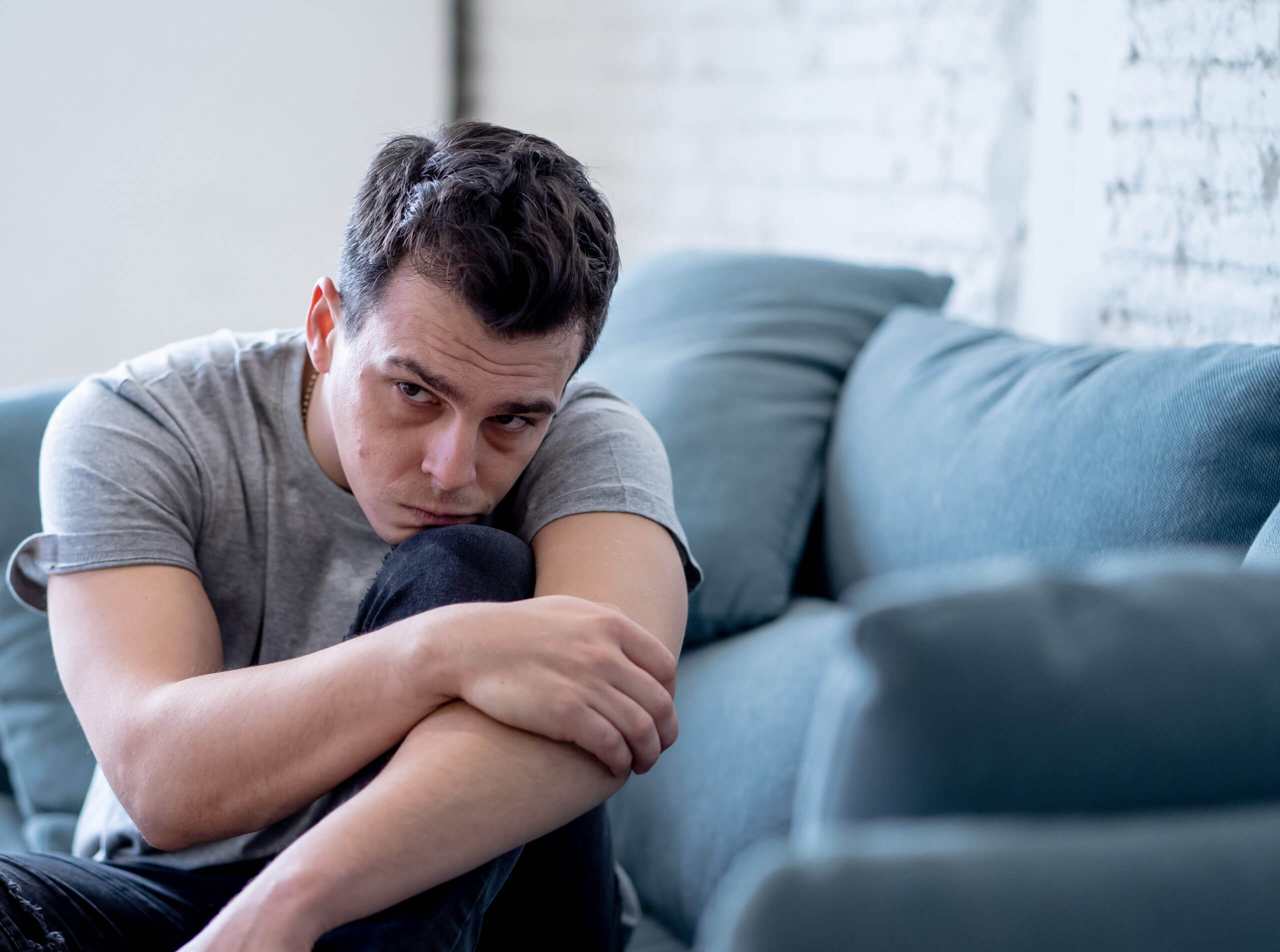
Depression & Mood Disorders in Los Angeles
Mood disorders like depression are more than just feeling sad or down. When you have a sadness that doesn’t seem to go away after a few weeks, you might have a mood disorder. In addition, mood disorders can elevate your mood to manic levels, causing difficulty sleeping and relaxing. Some young adults with mood disorders use drugs and alcohol to regulate their moods. Launch Centers of Los Angeles, CA, is here to give young adults the tools and coping skills they need to deal with mood disorders in a healthy way.

What is a Mood Disorder?
Depression is the second most presenting concern ( 36.4 percent), followed by Anxiety (41.6 percent). Depression is one of the most common mood disorders. A mood disorder is a serious mental illness that severely impacts a person’s mood and its related functioning. Those with mood disorders may suffer from anxiety, depression, bipolar disorder among others where they experience extreme feelings of sadness, emptiness, or irritability. Most disorders share common symptoms of depression, however an initial diagnosis of depression may be used by clinicians and doctors to further diagnose underlying issues of a related mood disorder. Depression is the biggest risk factor for suicidal youth. In the United States, suicide is the second leading cause of death among people aged 15–34 years. Among young adults aged 18–25 years, 8.3 percent have had serious thoughts of suicide. While there are many psychological, social, and societal factors that contribute to mood disorders, they are most often caused by an imbalance of brain chemicals.
Types of Mood Disorders
According to the Diagnostic and Statistical Manual of Mental Disorders (DSM-V), mood disorders are placed into two groups that include bipolar disorders and depressive disorders. In addition, about 20% of the United States population have reported one or more mood disorder symptoms in a given month. The most common mood disorders include:
Depression
Depression is a mood disorder in which a person experiences persistent feelings of sadness, worthlessness, hopelessness, or pessimism. These feelings usually interfere with everyday functioning such as working, eating, or sleeping. These symptoms must persist for at least two weeks to meet the criteria for depression. The causes of depression are varied and range from negative life events to biological factors. Depression is a far cry from being in a bad mood. And it’s important to understand that people who suffer from depression can’t “just feel better” – it’s much more complicated than that.
Bipolar Disorder
Bipolar Disorder is a mood disorder where an individual experiences symptoms of depression followed by periods of elated moods, high energy, or alternating with symptoms of mania. Also called manic depressive disorder or bipolar affective disorder, these mood cycles can last as long as months on end and as short as a couple of hours. Bipolar disorder can range from mild to severe.
Dysthymia
Dysthymia is a mild form of depression that affects 1.5% of the population. While people with dysthymia may feel it’s normal to be depressed, they’ve always felt this way however still continue to live their day-to-day lives. Dysthymia requires few depressive symptoms then regular depression and must be present in an individual for two years.
Mood Disorder Risks in Young Adults
Anybody can feel sad, have mood swings, and claim they’re depressed. Someone with a mood disorder finds their feelings are harder to manage than normal feelings of sadness. According to a study in the Journal of Abnormal Psychology, the rate of adolescents reporting symptoms consistent with major depression jumped 52 percent between the years of 2005 and 2017. It also showed significant increases in the rates of young adults who reported serious psychological distress and suicidal thoughts or suicide-related outcomes during similar time periods.
While there are common risks that make young adults more vulnerable to depression (e.g., hormones, chemical imbalances, or genetics), other potential causes could be the digital shift in society and new challenges presented by the Coronavirus (COVID-19) pandemic. A recent study found that teens and young adults who use social media frequently are at a higher risk for depression and mood disorder symptoms.
In addition, those that have family members diagnosed with a mood disorder may be genetically predisposed to one and may have a greater chance at having a mood disorder. Though, certain stressors and life events such as moving away to school, experiencing the after effects of a divorce, or losing a loved one can also contribute to these symptoms.
Treatment Options
For those struggling with comorbid conditions, treating substance abuse will not necessarily treat the mood disorder, however it’s ideal to treat both simultaneously. According to a study published in the journal of JAMA Internal Medicine, 46,000 adults screened for depression diagnosed nearly 10 percent with the disorder. However, less than 30 percent of those people actually sought treatment. Mood disorders are a severely under-treated condition that is incredibly important to seek help for.
There are a myriad of treatment options to help alleviate symptoms associated with mood disorders and substance abuse, but how well a specific one works for an individual depends on the severity and type of disorder. In addition, an untreated mood disorder can increase the risk of relapse. Conversely, untreated substance abuse can increase the risk for more intense mood disorder symptoms.
Most clinicians will focus on behavioral approaches in addition to pharmacological and medication options as needed. However, Cognitive Behavioral Therapy (CBT) and Dialectical Behavioral Therapy (DBT) has been shown to be the most effective treatment.
Mood Disorder Treatment in Los Angeles, CA
When a young adult suffers from a mood disorder they may initially believe that they’re alone with their condition. In reality, this is far from the truth. There are thousands who struggle with the same feels of depression, mania, and despair. At Launch Centers of Los Angeles, CA, our personalized therapeutic support team helps provide a safe space to overcome these challenges. Our distinguished team treats mood disorders and substance use disorder simultaneously for the best chance at success and recovery. Using a blend of medication, psychotherapy, peer group counseling, family counseling, life skills training, and educational guidance, young adults who enter treatment will learn how to effectively manage their mood disorder and lead a happy, healthy life. Visit our admissions page today to take the next steps towards recovery.




